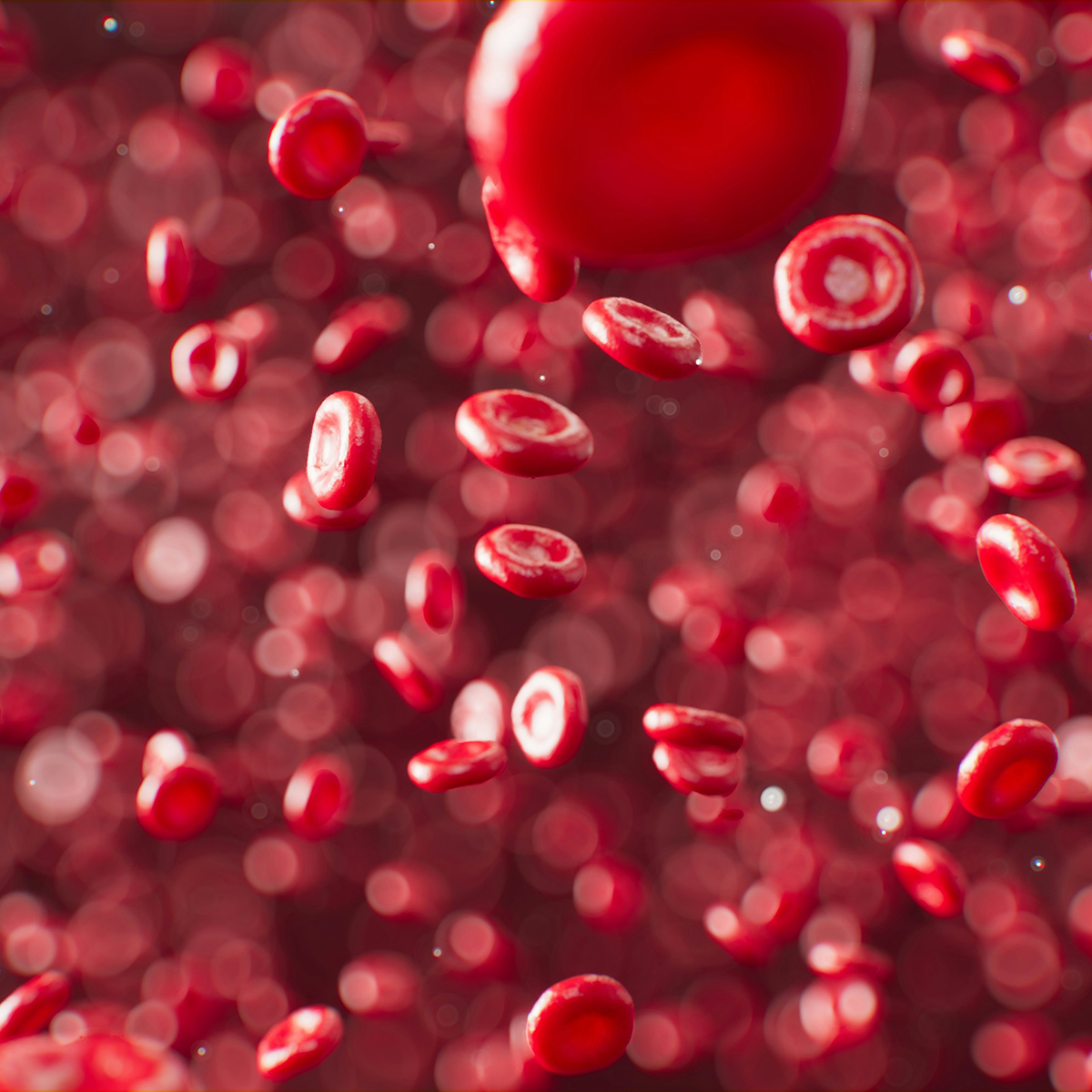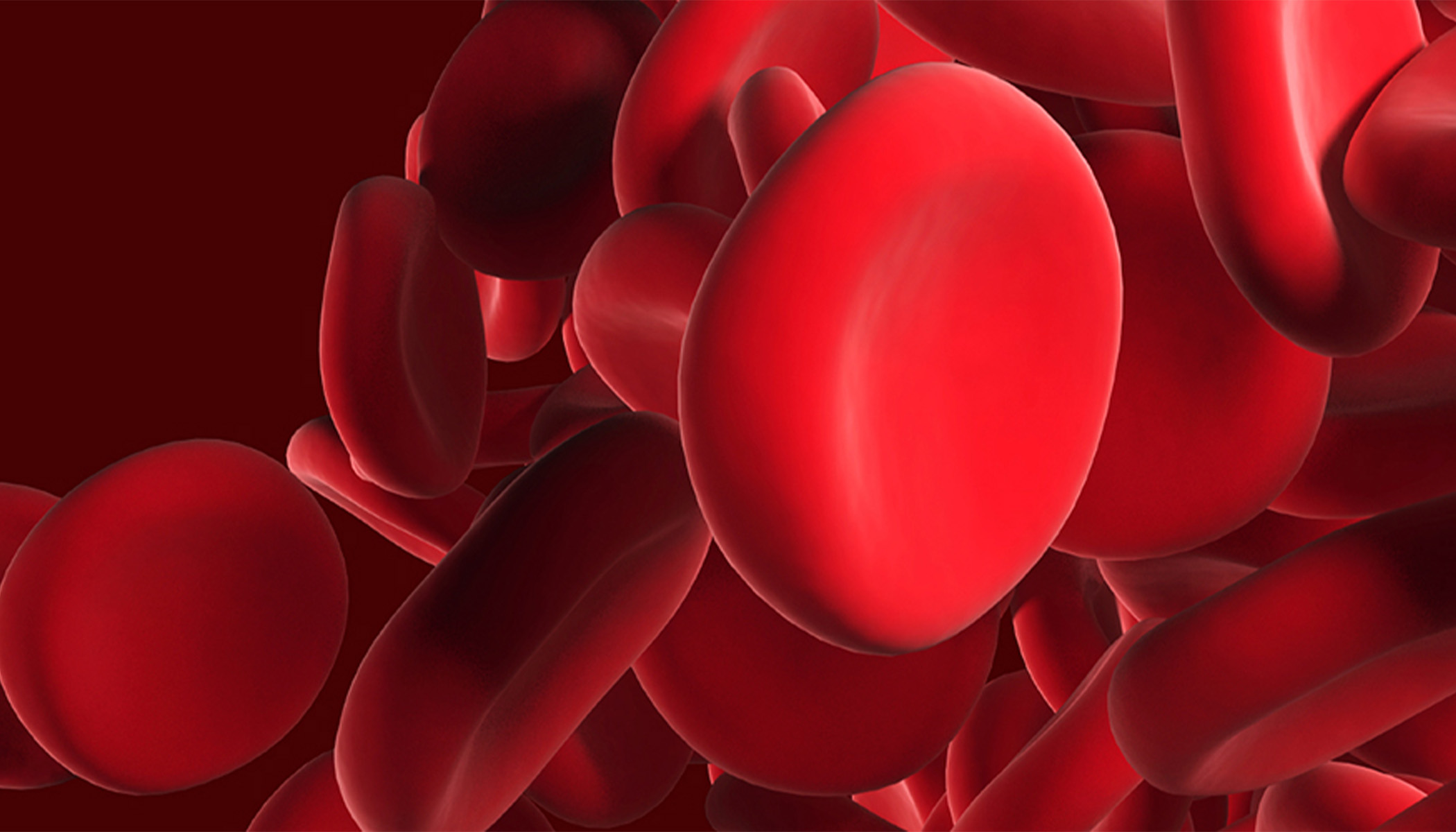X01 Ltd, a spin-out company from the University of Cambridge and Cambridge University Hospitals, was established to develop a new anticoagulant drug, ichorcumab, which has the potential to save millions of lives by preventing heart attacks and strokes, without causing bleeding. The company was acquired in March 2015 by Janssen Pharmaceuticals, Inc. (Janssen). The sale represents a key step in the progress toward this drug being used in patients.
The story of the drug’s development started with a chance clinical observation, and today ably demonstrates how a team of clinicians and scientists, working closely with Cambridge Enterprise, were able to develop early stage ideas and technology that, in this case, was successfully taken up by a major pharmaceutical company.
The initial idea
In 2008, a patient arrived in A&E at Cambridge University Hospitals with persistent headaches following a head injury sustained two weeks prior. “An intracranial bleed was diagnosed but we also discovered a degree of anticoagulation consistent with severe haemophilia,” said Dr Trevor Baglin, Consultant Haematologist at Cambridge University Hospitals, who treated the patient. “We thought it might be fatal. But to our surprise the bleeding stopped quite normally.” Further analysis revealed that the source of this anticoagulation was an antibody generated by the patient at very high levels. The antibody bound the key enzyme in the coagulation pathway, thrombin, and proved to be a potent inhibitor. Despite exceptionally high levels of this inhibitory antibody, the patient exhibited no symptoms that would be expected from someone with a compromised coagulation pathway.
Dr Baglin worked with his colleague at the University of Cambridge, Professor Jim Huntington, to characterise the antibody. It was during this work that the idea of developing a new anticoagulant drug arose.
Anticoagulants, such as warfarin and the newer generation of drugs that directly target thrombin and another coagulation factor (fXa), are a key for doctors seeking to treat or prevent thrombosis, or aberrant blood clots, which are a major cause of death. They are a significant factor in stroke and coronary heart disease that remain the biggest cause of deaths worldwide. The problem with existing anticoagulants is that they act on both aberrant and healthy clotting. By reducing healthy clotting, patients are at risk of haemorrhage, which itself can lead to illness and be life threatening. This means that patients currently receive a dose that balances the anti-thrombotic effectiveness with the risk of bleeding. Clinicians work hard to balance these aspects when using anticoagulants. Even so, anticoagulant-induced bleeding is the cause of more admissions to hospital than any other form of medical treatment. By breaking the link between effective prevention of thrombosis and increased bleeding risk, the treatment and prevention of thrombosis could be completely changed, saving millions of lives.
This is the most exciting drug candidate we’ve seen in 20 years in the industry. It has the potential to save millions of lives.
Dr David Grainger
“Undoubtedly higher doses of these anticoagulant drugs could prevent the majority of heart attacks and strokes,” said Dr Baglin. “But we can’t give higher doses because the bleeding they would cause would itself be fatal. Ichorcumab has the potential to change all that.”
Proof of concept
With the support of Cambridge Enterprise, tests were undertaken to determine if the antibody could be used to prevent thrombosis. These studies were successful, and ichorcumab, a synthetic antibody based on a naturally occurring antibody, was engineered by the team. “This antibody can deliver a high degree of anticoagulation without increased bleeding: something we’ve never seen before,” said Huntington.
Cambridge Enterprise led the efforts to find a commercial partner and engaged with a number of the world’s leading pharmaceutical companies, but in the end a new company was born. In April 2013, X01 was established with Index Ventures who provided $11 million in series A funding to the company, with additional investment from Cambridge Enterprise Seed Funds. X01 was set up as an asset-centric virtual biotech company. It licensed the intellectual property covering ichorcumab from Cambridge Enterprise and employed a very small management team. “This is the most exciting drug candidate we’ve seen in 20 years in the industry,” echoed Dr David Grainger, Venture Partner at Index Ventures and Chief Scientific Officer of X01 Ltd. “It has the potential to save millions of lives.”
All research and development activities were outsourced, which ensured an efficient use of the company’s capital as all the resources were directed towards the development of ichorcumab.
Enter Janssen
In March 2015, X01 was acquired by Janssen Pharmaceuticals. The opportunity was identified and facilitated through Johnson & Johnson Innovation, London. “This acquisition illustrates how our global innovation strategy enables a local, hands-on approach that supports the regional life science ecosystems, provides Janssen a window on the most exciting science around the world and provides access to potentially breakthrough products in areas of strategic interest,” said Patrick Verheyen, Head of Johnson & Johnson Innovation, London.
Peter DiBattiste, M.D., Global Development Head, Cardiovascular, Janssen Research & Development, LLC said: “Ichorcumab provides an excellent complement to the Janssen cardiovascular portfolio. Given Janssen’s leadership in the fields of anticoagulation and biologics, we are well positioned to explore the potential of this next generation anticoagulant.”
“X01 has made great progress with ichorcumab,” said Dr Andrew Walsh, a technology manager at Cambridge Enterprise. “We are delighted that Janssen Pharmaceuticals will now be investing further in this programme. They have the capability not only to take this pre-clinical opportunity to the clinic but also to market it across the globe so that it is available to patients worldwide.”
The antithrombotic market is expected to reach $20 billion a year by 2018. The size of the market for antithrombotics demonstrates their commercial attractiveness. Several new oral anticoagulants have sales in the region of $1 billion a year each, even though their improvements over generic drugs, such as warfarin, are relatively small.
You can learn more about X01 in our film.
Ichorcumab: A Revolutionary Anticoagulant
Life SciencesX01 Ltd, a spin-out from the University of Cambridge and Cambridge University Hospitals, is developing a new anticoagulant drug, ichorcumab, which has the potential to save millions of lives by preventing heart attacks and strokes, without causing bleeding .
The company was acquired by Janssen Pharmaceuticals, Inc. in March 2015, marking a key step toward the drug’s use in patients to prevent heart attacks and strokes without causing bleeding.
The story of the drug’s development started with a chance clinical observation, and today ably demonstrates how a team of clinicians and scientists, working closely with Cambridge Enterprise, were able to develop early stage ideas and technology that, in this case, was successfully taken up by a major pharmaceutical company.
The initial idea
In 2008, a patient arrived in A&E at Cambridge University Hospitals with persistent headaches following a head injury sustained two weeks prior. “An intracranial bleed was diagnosed but we also discovered a degree of anticoagulation consistent with severe haemophilia,” said Dr Trevor Baglin, Consultant Haematologist at Cambridge University Hospitals, who treated the patient. “We thought it might be fatal. But to our surprise the bleeding stopped quite normally.” Further analysis revealed that the source of this anticoagulation was an antibody generated by the patient at very high levels. The antibody bound the key enzyme in the coagulation pathway, thrombin, and proved to be a potent inhibitor. Despite exceptionally high levels of this inhibitory antibody, the patient exhibited no symptoms that would be expected from someone with a compromised coagulation pathway.
Dr Baglin worked with his colleague at the University of Cambridge, Professor Jim Huntington, to characterise the antibody. It was during this work that the idea of developing a new anticoagulant drug arose.
Anticoagulants, such as warfarin and the newer generation of drugs that directly target thrombin and another coagulation factor (fXa), are a key for doctors seeking to treat or prevent thrombosis, or aberrant blood clots, which are a major cause of death. They are a significant factor in stroke and coronary heart disease that remain the biggest cause of deaths worldwide. The problem with existing anticoagulants is that they act on both aberrant and healthy clotting. By reducing healthy clotting, patients are at risk of haemorrhage, which itself can lead to illness and be life threatening. This means that patients currently receive a dose that balances the anti-thrombotic effectiveness with the risk of bleeding. Clinicians work hard to balance these aspects when using anticoagulants. Even so, anticoagulant-induced bleeding is the cause of more admissions to hospital than any other form of medical treatment. By breaking the link between effective prevention of thrombosis and increased bleeding risk, the treatment and prevention of thrombosis could be completely changed, saving millions of lives.
“Undoubtedly higher doses of these anticoagulant drugs could prevent the majority of heart attacks and strokes,” said Dr Baglin. “But we can’t give higher doses because the bleeding they would cause would itself be fatal. Ichorcumab has the potential to change all that.”
"This is the most exciting drug candidate we’ve seen in 20 years in the industry. It has the potential to save millions of lives."

Proof of concept
With the support of Cambridge Enterprise, tests were undertaken to determine if the antibody could be used to prevent thrombosis. These studies were successful, and ichorcumab, a synthetic antibody based on a naturally occurring antibody, was engineered by the team. “This antibody can deliver a high degree of anticoagulation without increased bleeding: something we’ve never seen before,” said Huntington.
Cambridge Enterprise led the efforts to find a commercial partner and engaged with a number of the world’s leading pharmaceutical companies, but in the end a new company was born. In April 2013, X01 was established with Index Ventures who provided $11 million in series A funding to the company, with additional investment from Cambridge Enterprise Seed Funds. X01 was set up as an asset-centric virtual biotech company. It licensed the intellectual property covering ichorcumab from Cambridge Enterprise and employed a very small management team. “This is the most exciting drug candidate we’ve seen in 20 years in the industry,” echoed Dr David Grainger, Venture Partner at Index Ventures and Chief Scientific Officer of X01 Ltd. “It has the potential to save millions of lives.”
All research and development activities were outsourced, which ensured an efficient use of the company’s capital as all the resources were directed towards the development of ichorcumab.
Enter Janssen
In March 2015, X01 was acquired by Janssen Pharmaceuticals. The opportunity was identified and facilitated through Johnson & Johnson Innovation, London. “This acquisition illustrates how our global innovation strategy enables a local, hands-on approach that supports the regional life science ecosystems, provides Janssen a window on the most exciting science around the world and provides access to potentially breakthrough products in areas of strategic interest,” said Patrick Verheyen, Head of Johnson & Johnson Innovation, London.
Peter DiBattiste, M.D., Global Development Head, Cardiovascular, Janssen Research & Development, LLC said: “Ichorcumab provides an excellent complement to the Janssen cardiovascular portfolio. Given Janssen’s leadership in the fields of anticoagulation and biologics, we are well positioned to explore the potential of this next generation anticoagulant.”
“X01 has made great progress with ichorcumab,” said Dr Andrew Walsh, a technology manager at Cambridge Enterprise. “We are delighted that Janssen Pharmaceuticals will now be investing further in this programme. They have the capability not only to take this pre-clinical opportunity to the clinic but also to market it across the globe so that it is available to patients worldwide.”
The antithrombotic market is expected to reach $20 billion a year by 2018. The size of the market for antithrombotics demonstrates their commercial attractiveness. Several new oral anticoagulants have sales in the region of $1 billion a year each, even though their improvements over generic drugs, such as warfarin, are relatively small.
You can learn more about X01 in our film.




